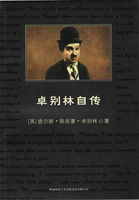A day or two after, we had an adventure of another sort with a party of wagoners.Henry and I rode forward to hunt.After that day there was no probability that we should meet with buffalo, and we were anxious to kill one for the sake of fresh meat.They were so wild that we hunted all the morning in vain, but at noon as we approached Cow Creek we saw a large band feeding near its margin.Cow Creek is densely lined with trees which intercept the view beyond, and it runs, as we afterward found, at the bottom of a deep trench.We approached by riding along the bottom of a ravine.When we were near enough, I held the horses while Henry crept toward the buffalo.Isaw him take his seat within shooting distance, prepare his rifle, and look about to select his victim.The death of a fat cow was certain, when suddenly a great smoke arose from the bed of the Creek with a rattling volley of musketry.A score of long-legged Missourians leaped out from among the trees and ran after the buffalo, who one and all took to their heels and vanished.These fellows had crawled up the bed of the Creek to within a hundred yards of the buffalo.Never was there a fairer chance for a shot.They were good marksmen; all cracked away at once, and yet not a buffalo fell.In fact, the animal is so tenacious of life that it requires no little knowledge of anatomy to kill it, and it is very seldom that a novice succeeds in his first attempt at approaching.The balked Missourians were excessively mortified, especially when Henry told them if they had kept quiet he would have killed meat enough in ten minutes to feed their whole party.Our friends, who were at no great distance, hearing such a formidable fusillade, thought the Indians had fired the volley for our benefit.Shaw came galloping on to reconnoiter and learn if we were yet in the land of the living.
At Cow Creek we found the very welcome novelty of ripe grapes and plums, which grew there in abundance.At the Little Arkansas, not much farther on, we saw the last buffalo, a miserable old bull, roaming over the prairie alone and melancholy.
From this time forward the character of the country was changing every day.We had left behind us the great arid deserts, meagerly covered by the tufted buffalo grass, with its pale green hue, and its short shriveled blades.The plains before us were carpeted with rich and verdant herbage sprinkled with flowers.In place of buffalo we found plenty of prairie hens, and we bagged them by dozens without leaving the trail.In three or four days we saw before us the broad woods and the emerald meadows of Council Grove, a scene of striking luxuriance and beauty.It seemed like a new sensation as we rode beneath the resounding archs of these noble woods.The trees were ash, oak, elm, maple, and hickory, their mighty limbs deeply overshadowing the path, while enormous grape vines were entwined among them, purple with fruit.The shouts of our scattered party, and now and then a report of a rifle, rang amid the breathing stillness of the forest.We rode forth again with regret into the broad light of the open prairie.Little more than a hundred miles now separated us from the frontier settlements.The whole intervening country was a succession of verdant prairies, rising in broad swells and relieved by trees clustering like an oasis around some spring, or following the course of a stream along some fertile hollow.These are the prairies of the poet and the novelist.We had left danger behind us.Nothing was to be feared from the Indians of this region, the Sacs and Foxes, the Kansas and the Osages.We had met with signal good fortune.Although for five months we had been traveling with an insufficient force through a country where we were at any moment liable to depredation, not a single animal had been stolen from us, and our only loss had been one old mule bitten to death by a rattlesnake.Three weeks after we reached the frontier the Pawnees and the Comanches began a regular series of hostilities on the Arkansas trail, killing men and driving off horses.They attacked, without exception, every party, large or small, that passed during the next six months.
Diamond Spring, Rock Creek, Elder Grove, and other camping places besides, were passed all in quick succession.At Rock Creek we found a train of government provision wagons, under the charge of an emaciated old man in his seventy-first year.Some restless American devil had driven him into the wilderness at a time when he should have been seated at his fireside with his grandchildren on his knees.
I am convinced that he never returned; he was complaining that night of a disease, the wasting effects of which upon a younger and stronger man, I myself had proved from severe experience.Long ere this no doubt the wolves have howled their moonlight carnival over the old man's attenuated remains.
Not long after we came to a small trail leading to Fort Leavenworth, distant but one day's journey.Tete Rouge here took leave of us.He was anxious to go to the fort in order to receive payment for his valuable military services.So he and his horse James, after bidding an affectionate farewell, set out together, taking with them as much provision as they could conveniently carry, including a large quantity of brown sugar.On a cheerless rainy evening we came to our last encamping ground.Some pigs belonging to a Shawnee farmer were grunting and rooting at the edge of the grove.
"I wonder how fresh pork tastes," murmured one of the party, and more than one voice murmured in response.The fiat went forth, "That pig must die," and a rifle was leveled forthwith at the countenance of the plumpest porker.Just then a wagon train, with some twenty Missourians, came out from among the trees.The marksman suspended his aim, deeming it inexpedient under the circumstances to consummate the deed of blood.















